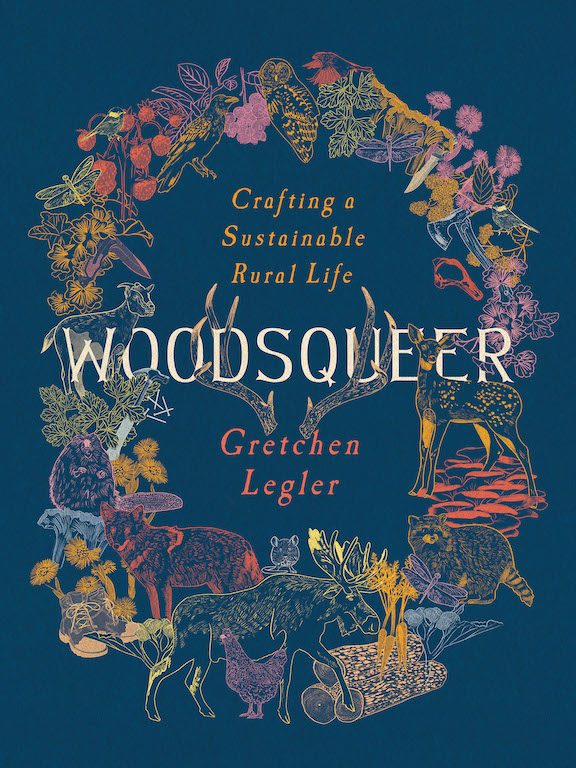
By Gretchen Legler
Trinity University Press, 2022
288 pages, paperback, $18.95
Gretchen Legler says some people may describe her as “woodsqueer,” a somewhat obscure term for those “who’d been in the woods too long.” Her latest book, “Woodsqueer: Crafting a Sustainable Rural Life,” embraces the moniker wholeheartedly, with an emphasis on both “woods” and “queer.” Part memoir and part natural history, this place-based collection of essays invites readers into the woods of rural Jay, Maine, where Legler and her partner Ruth have built a homestead on 80 acres.
At Three O’Clock Cat Farm, which is affectionately named after a quirky painting by a local artist, readers are immersed in the trial and error, tenacity and grit, and humor and compassion required to run a homestead. Legler calls to life the seasons on their small farm, sharing lessons learned firsthand on keeping persnickety goats inside a fence, raising and hunting animals for meat, foraging for food, and heating with fuel harvested from the land. She describes these endeavors with enough detail — as well as labeled hand-drawn diagrams — that, by the book’s end, one learns how to skin a beaver, pluck a chicken, stack a pile of firewood and press a bushel of apples into cider. (If you throw a red beet into the mix, she says, you’ll be rewarded with an earthy, rosy-hued juice.) Legler’s practical advice also extends to planning a garden, which she deems “a place of miracles,” and is powerful in its simplicity: consider what you like to eat. Such a question “invites the answer out of the earth itself.”
However, “Woodsqueer” is less of a guidebook to homesteading than one to the human heart. Legler reflects on the cycles of life she witnesses around her with poignant intimacy, and weaves in her own life’s story: baring the details of coming out as a lesbian and finding queerness in a heteronormative world. At its core, “Woodsqueer” is a book about community — in the broadest sense. It is a meditation on relationships: with plants and animals, soil and sky, neighbors and friends, family (both biological and chosen), the past and the present. Legler, who holds a master’s in divinity and has volunteered as a chaplain at the local hospital, muses on her place as a queer woman in this constellation of life with love and attention, bringing awe and reverence to every page. In a time when disconnection to the world and each other is palpable — magnified by the isolation of a pandemic and our digitized society — her words are a balm. “I was never alone; I never had been alone,” she writes. “I swim in a sea of relations, with people dead and alive, with powerful forces I can’t see or understand, and with every single living organism on this earth.”
Holli Cederholm
